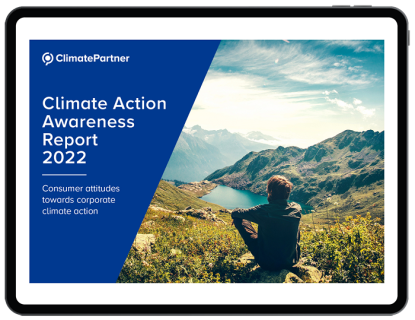Climate Action Awareness Report 2022
Learn more about consumer attitudes towards corporate climate action and sustainable shopping

- Some key findings
- Consumers care about the climate and are ready to change their habits
- Consumers are optimistic about carbon neutral products and services
- Carbon neutral or climate-friendly labels serve as a guide to sustainable consumption
- Consumers expect companies to act and communicate climate action transparently
- Companies need to live up to consumer’s climate action expectations
- Video: Consumer Awareness for Climate Action 2022
- Download the report
Let’s start with the most important findings of the consumer survey conducted in ten different countries: Climate action is of high importance to consumers – despite the many other challenges of recent times.
The survey also clearly shows that after a clear and transparent explanation, consumers understand the concept of greenhouse gas emissions and offsetting, recognise, and correctly interpret climate-friendly labels, and use them as guidance for their purchase choices.
This has clear consequences for companies: Consumers expect them to take responsibility to help protect the climate and to communicate their climate action initiatives transparently.
Among the countries surveyed, Spain and Italy stand out with a higher awareness of the need for climate action.
Some key findings
| 75% of respondents stated that climate change is very important or a top priority. |
42% of participants say the label is an important decision-making aid. |
|
| 30% of respondents are also willing to give up meat products to support climate action, 41% are willing to give up traveling by plane and 39% are willing to give up driving a petrol-using car. |
51% of participants say carbon neutral or climate-friendly products influence their purchasing decisions. |
|
| 45% of participants believe food and beverages can be carbon neutral, and for 40% this also includes meat and dairy products. |
80% of respondents consider it to be very important or a top priority for companies to take responsibility for climate action. |
|
| 60% of surveyed consumers stated a carbon neutral or climate-friendly label is important when purchasing a product. |
60% of respondents see transparency and information about a company’s climate action as important when choosing sustainable products. |
|
| 49% of participants think the label shows that a company is taking responsibility for climate action. |
Consumers care about the climate and are ready to change their habits
Consumers are aware of and care deeply about climate change and climate action, despite having to deal with dramatic changes in their lives caused by the current challenges in the world (e.g., the war in Ukraine, the COVID-19 pandemic, and worldwide inflation).
75% of all respondents find climate change very important or a top priority (Top 2). The urgency for climate action is felt most strongly in Spain and Italy, where 89% and 88% of all respondents respectively rate climate change as “very important” or “top priority” (Top 2).
Moving forward, many consumers are willing to adapt their current lifestyle to support climate action. Over 40% of respondents are willing to give up traveling by plane for work or vacation, and 39% are willing to give up driving a car (petrol-using). Making changes to their nutrition is more challenging to most of the consumers: Approximately one third of respondents would give up meat or meat products but only 18% would give up dairy products to support climate change and help prevent global warming.
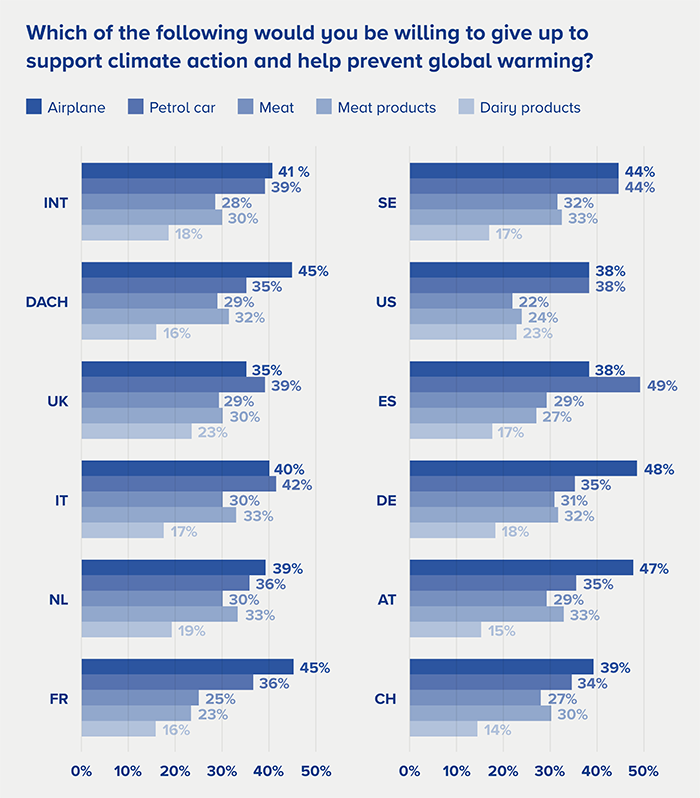
Consumers are optimistic about carbon neutral products and services
In general, consumers seem to believe that many products and services can become carbon neutral. More than 40% of respondents believe that products in the categories of food and beverages, paper, clothing, cosmetics and toiletries, and meat and dairy products can be carbon neutral. Interestingly, the percentage of consumers in the US and the DACH region who believe products (across all categories) can be carbon neutral is significantly higher than in other countries.
Some industries are less believable to be carbon neutral, such as services and events. Possible reasons for this could be the general consumer perception of these industries, that they have not managed the communication of their carbon neutrality efforts as effectively as some better performing industries, or simply that they have not taken on the path of climate action as vigorously as companies from other industries.
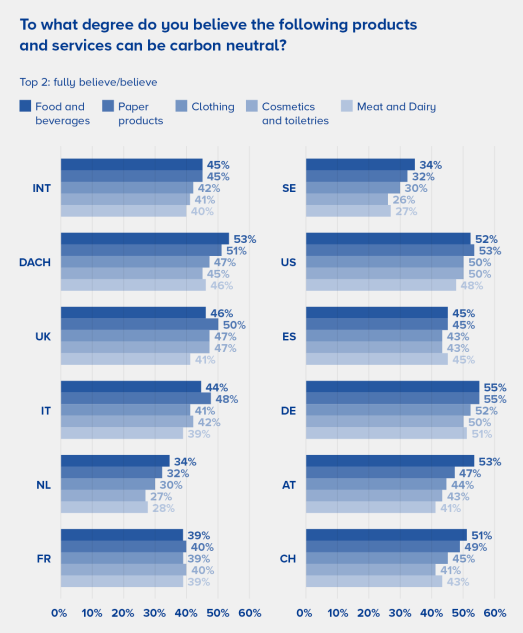
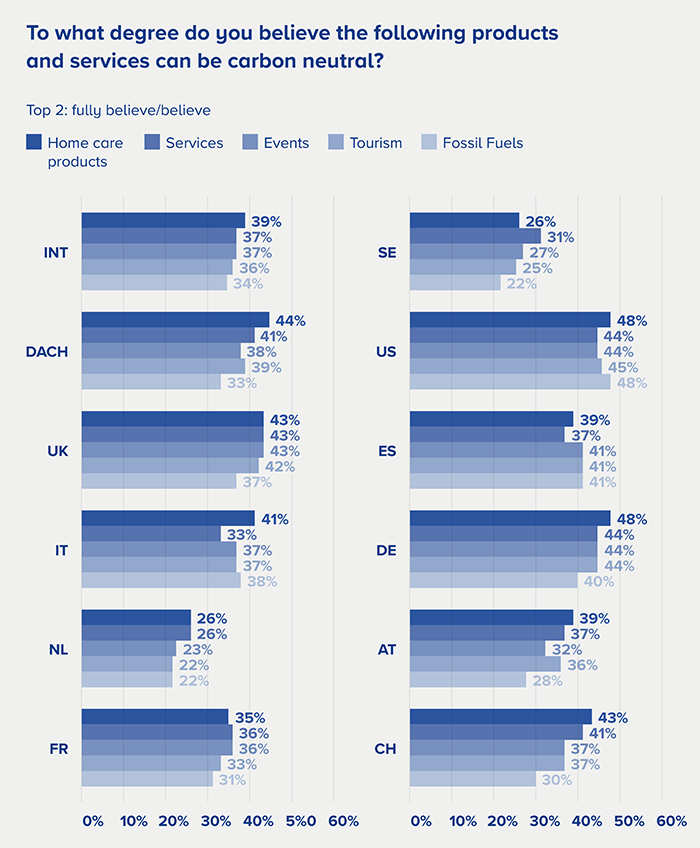
Carbon neutral or climate-friendly labels serve as a guide to sustainable consumption
60% of respondents find a carbon neutral or climate-friendly label to be very important or of top priority (Top 2) when purchasing a product, proving that most consumers do in fact pay attention to sustainable labels.
Carbon neutral or climate-friendly labels also play an important role in the daily purchase decisions of consumers. For 42% of respondents, a label assures them about their purchase. And 49% of all respondents say that the label shows them that a company is taking responsibility for climate action.
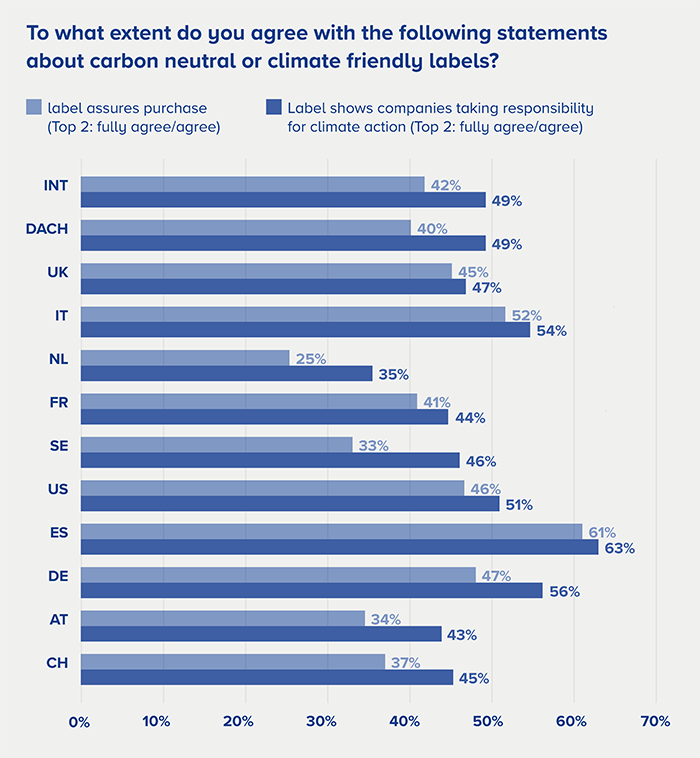
Consumers expect companies to act and communicate climate action transparently
The consumer reaction could not have been clearer on this matter: 80% of all participants in the survey stated that it is very important or of top priority (Top 2) for them that companies are taking responsibility to help protect the climate. Countries where the need for climate action is felt the strongest, also showed the strongest results. 91% and 90% of respondents from Spain and Italy respectively expressed their need for companies to act in protecting the climate.
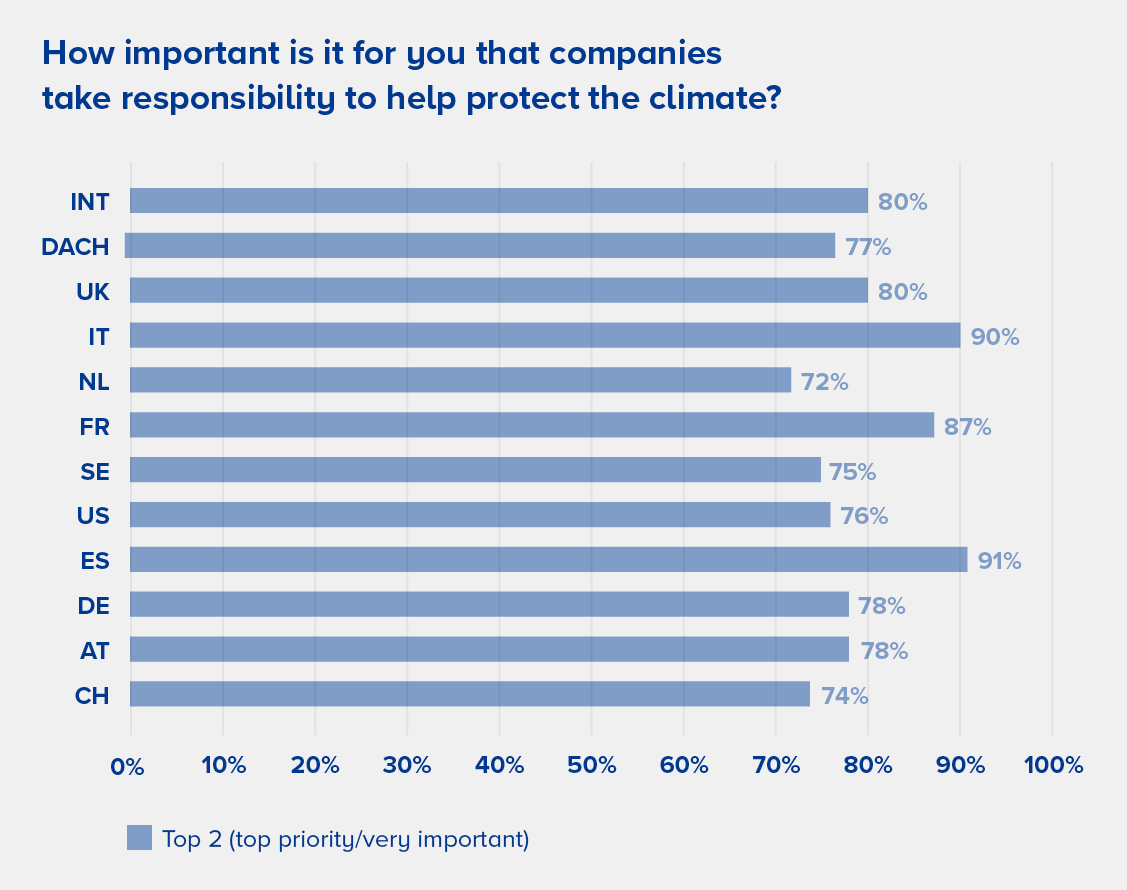
Transparent and clear communication of corporate climate action measures, successes, and failures are key here. 60% of surveyed consumers consider it to be very important or of top priority (Top 2) to have transparency and be able to track a company’s climate action initiatives. A carbon neutral or climate-friendly label where all climate action measures can be tracked and communicated transparently can be an asset for companies to inform their customers about their initiatives for reducing, avoiding, and offsetting their emissions.
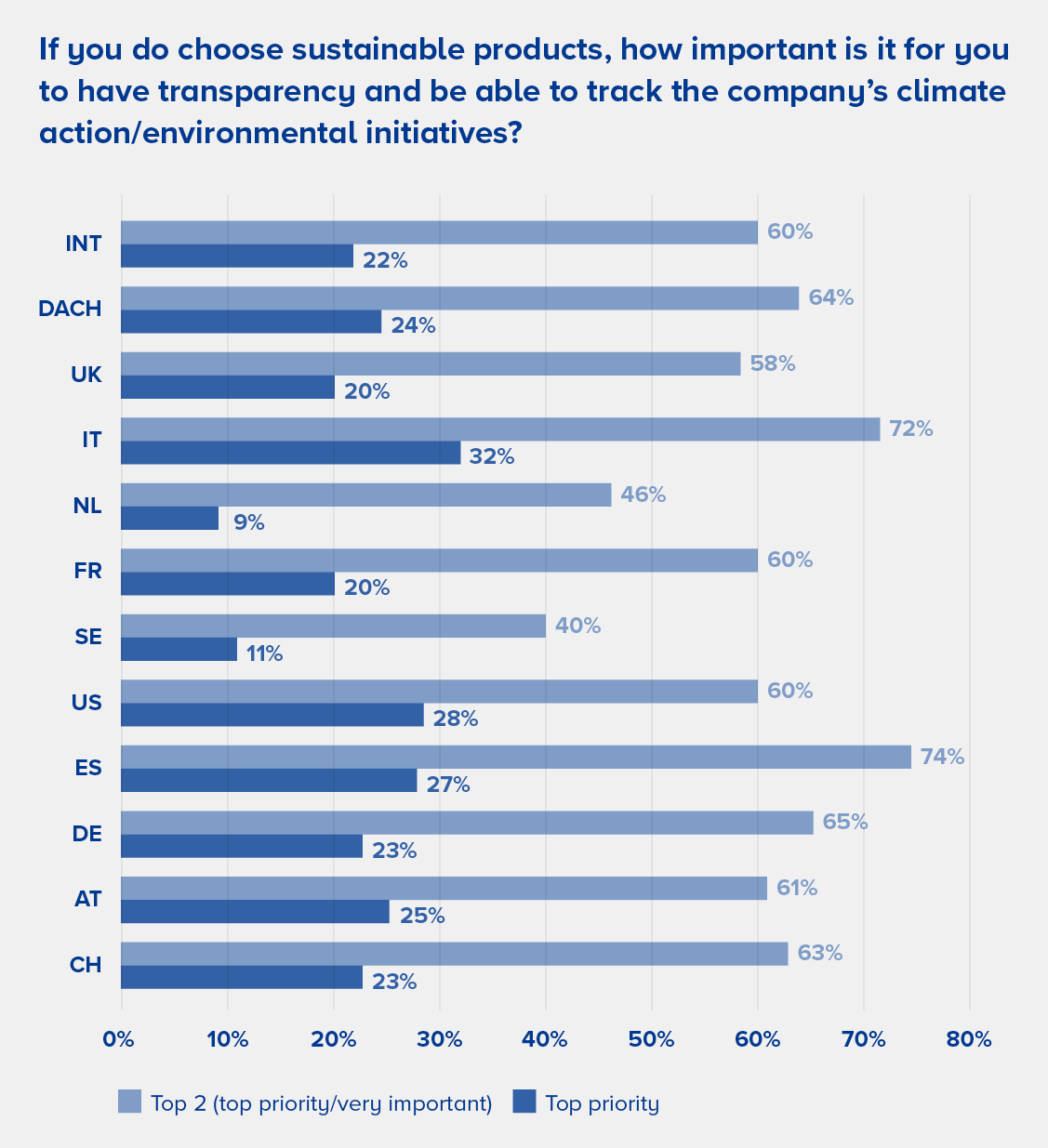
Companies need to live up to consumer’s climate action expectations
The results of this survey show that corporate climate action is increasingly becoming a term that stands for a clear strategy and measures that are traceable and support a company's climate transformation. Despite many other issues that impact our daily purchase decisions, consumers want to engage in climate action and do their part. Companies should understand this readiness and act accordingly by defining and executing a holistic climate action strategy. Climate action is a journey that requires short-term, mid-term, and long-term strategies with tangible actions.
Start your climate action journey today.
Methodology:
In 2022, the market research institute Appinio conducted a global survey commissioned by ClimatePartner to find out more about consumers’ current perception and awareness of corporate climate action. The statements of this report are based on the responses of 9,556 consumers aged 14 and upwards in the following countries: the UK, Italy, the Netherlands, France, Sweden, the USA, Spain, Germany, Austria, and Switzerland. The results above refer to international averages that were calculated including all consumer statements from all countries.
Video: Consumer Awareness for Climate Action 2022
Download the report
